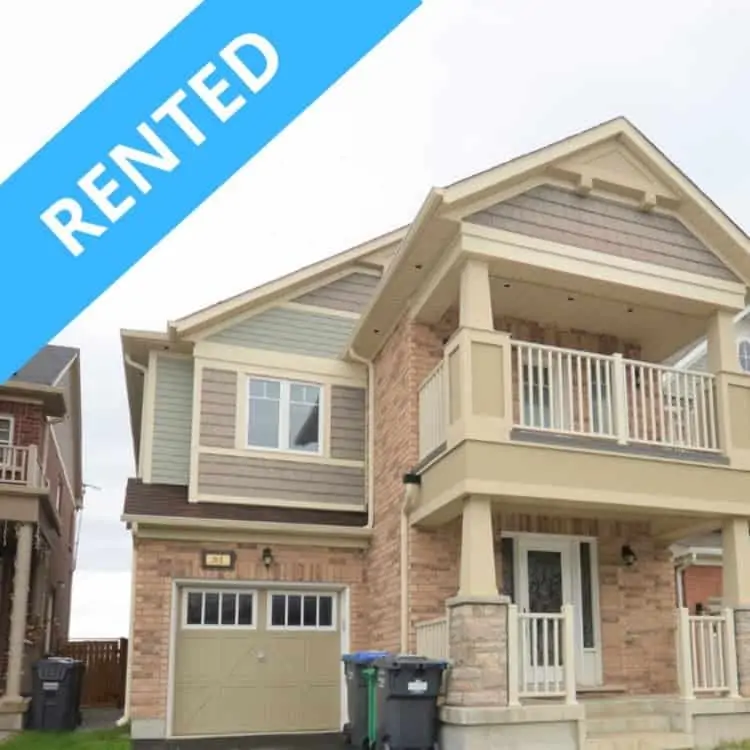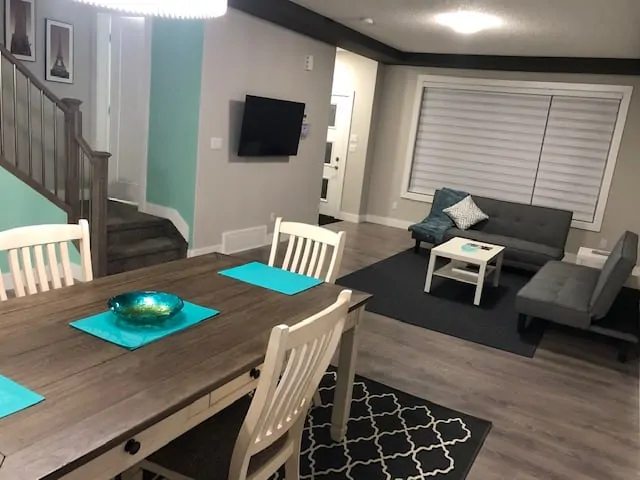Current real estate values and the fluctuating property prices aside, investing in real estate in Ontario has proven to be a profitable investment option for generations. However, for many Canadians, the question of how to successfully invest in real estate is somewhat a tricky one. This article focuses on different ways to make money in the Ontario property market. But first, let’s evaluate what investing in real estate is all about.
What’s real estate investing?
Investing in real estate refers to income generated from land and properties or a combination of the two. When Ontarians consider real estate investments, they often think of apartment buildings or rental properties. That’s, after all, how a more significant percentage of Canadians invest in the real estate market. What they don’t know is that there are different ways of investing in real estate, and some of these ways don’t even require you to own a home, rental properties, or other types of physical properties.
What are the benefits of investing in real estate?
Suppose your current investments are limited bonds and stocks or ETFs, there are many benefits of adding investment properties as an asset class. Here is a quick list of the benefits of well-thought-out real estate investing.
- Regular and reliable rental income stream
- Tax-efficient investment option (you will get many tax advantages)
- Real estate business (asset class) is an excellent complement to equities.
- Historical returns in Ontario housing marketing have been solid for decades.
- Different types of properties are associated with long-term capital appreciation.
- Increased real estate funds (returns) through leveraging (mortgage)
- Real estate investing acts as a hedge against increasing inflation – when prices increase, the value of investment properties increases.
9 ways to invest in the Ontario property market
Here are nine different ways real estate investors can add a rental property or any other property type to their investment portfolio. Some investment options require a significant amount of time, while others are somewhat passive. Similarly, some real estate investing options require huge capital, and others require only a few dollars to get started.
1. Purchase a principal residence
Most Canadians believe a principal residence, though an asset, shouldn’t be considered an investment property because it doesn’t generate cash flow. Regardless of where you stand on this issue, your home (physical property) can potentially increase in value over time, particularly if you purchased in an appreciating real estate market.
2. House hacking
Converting your primary home or residence into a rental property (income-generating property) is probably the easiest way to own a rental property. There are different ways to achieve this, and house hacking is the most popular option. It involves renting out parts of your primary residence, such as the basement suite or one-bedroom, while you continue to stay in the property.
The total income generated for the rental portion could help offset a fraction or entire cost of your mortgage. Indeed, it’s an excellent way for real estate investors or homeowners to increase cash and eventually grow their net worth. Note that house hacking may include short-term rentals like Airbnb.
3. Converting your primary residence into a rental property

Suppose you don’t find house hacking interesting, in that case, you can purchase or rent a new home and turn your initial home into a rental unit. There are several advantages of implementing this strategy as one of your initial investments. First, you already own the home, which means you don’t have to incur the expense of purchasing rental properties from scratch.
Remember, most lenders ask for a 25% or more down payment for residential properties. Not only that, but you also need real estate agents to find a suitable multi-unit building, single-family home, or other rental properties. Also, you must go through the mortgage approval process. The good news is that you don’t need to go through all that if you convert your primary home into a rental unit and get a long-term tenant.
4. Buy rental properties
Assuming you have enough resources available, you can decide to buy rental properties instead of house hacking or converting your principal residence into a rental unit. Keep in mind that the upfront cost is likely to be much higher, but you can still choose investment properties suited as a rental. Ideally, it’s recommended to purchase such properties in a rapidly appreciating property market, where the economy is stable, and property is continually increasing in value.
Regardless of how you choose to acquire your rental unit, you must ensure that it brings positive cash flow. That means the money coming from rental income exceeds your current total housing expenses, excluding property taxes, regular property maintenance, utilities, and mortgage payments. Work with a trusted financial advisor or brokerage firm to find the most viable way to add rental properties into your investment portfolio.
5. Airbnb
Another profitable way of investing in real estate is Airbnb. The advancements in mobile technology and innovations have created a new wave of property market investors worldwide. Travelers can now find custom, affordable accommodation options when traveling by booking with Airbnb. So, if you own an apartment or a house with extra space, you can make it available for a short-term rental unit on Airbnb.
Once you advertise your unit on the Airbnb app, users traveling in that area can now book the spare apartment, bedroom, or entire property for a short-term stay. Remember, listing your property is free, you set your property, and it’s a flexible way of investing in real estate. And you get paid after the guests’ check-in.
6. Flip residential properties

If you have been watching HGTV, you are probably familiar with the concept of flipping houses. House flippers often invest by buying a house with upside potential, injecting a significant amount of money to improve the house’s value, and selling it for a profit. While some flippers may choose to keep the house as a rental unit, the primary goal is to sell it eventually.
Keep in mind that house flipping is a tricky investment strategy, but when done correctly, it offers better rewards. Whether you want to flip a residential property or office building, you must have an in-depth understanding of the local property market or consult with an expert who does. Some of the downsides of property flipping include;
- Requires significant upfront capital or investment
- Tax implications that could eat into profit
- Unexpected expenses can potentially derail investment plans
- Personal stress, especially if market conditions aren’t right
- Inability to sell the property at the right time
- Time delays can result in unforeseen holding costs
7. Buy farmland
Did you know that Bill Gates owns the largest private farmland in the U.S with about 300,000 acres of land? Why did he purchase so much land? Because it is a great investment and the value of land in North America is stable. You can choose to purchase and hold the land and probably sell it for a significant profit in the future.
8. Real Estate Investment Trusts (REITs)
Simply put, REITs are pooled investments that allow you to purchase and sell real estate, particularly in the stock market. The main benefit of holding REITs is that it allows you to benefit from the growth of real estate holdings and property markets with the expensive overhead and hassle of purchasing individual properties.
With REITs, you can successfully participate in owning many commercial and residential properties in Ontario, making it an effective way of investing in real estate. REITs also pay dividend income (tax-efficient), supports geographic diversification, and often gain industry-specific exposure.
9. Commercial real estate investments
A less common but profitable way of investing in real estate is commercial real estate ownership. This can be anything from small retail storefronts to large offices and even shopping malls. Remember, businesses usually rent spaces to operate their offices, retail stores, restaurants, and manufacturing facilities.
Final thoughts
No matter whether you want to invest in real estate or stock, each investor must strive to own a highly diversified portfolio. An effective to achieve diversification is by investing in real estate or multiple asset classes. If you need help learning more about different ways of investing in real estate, contact Kean Real Estate Group.








